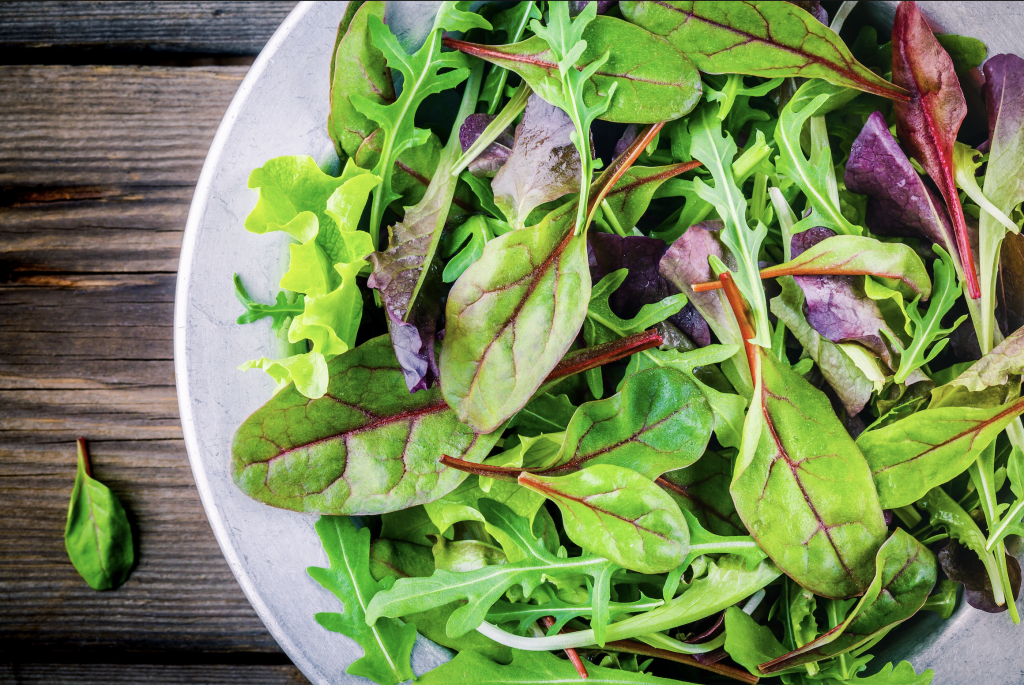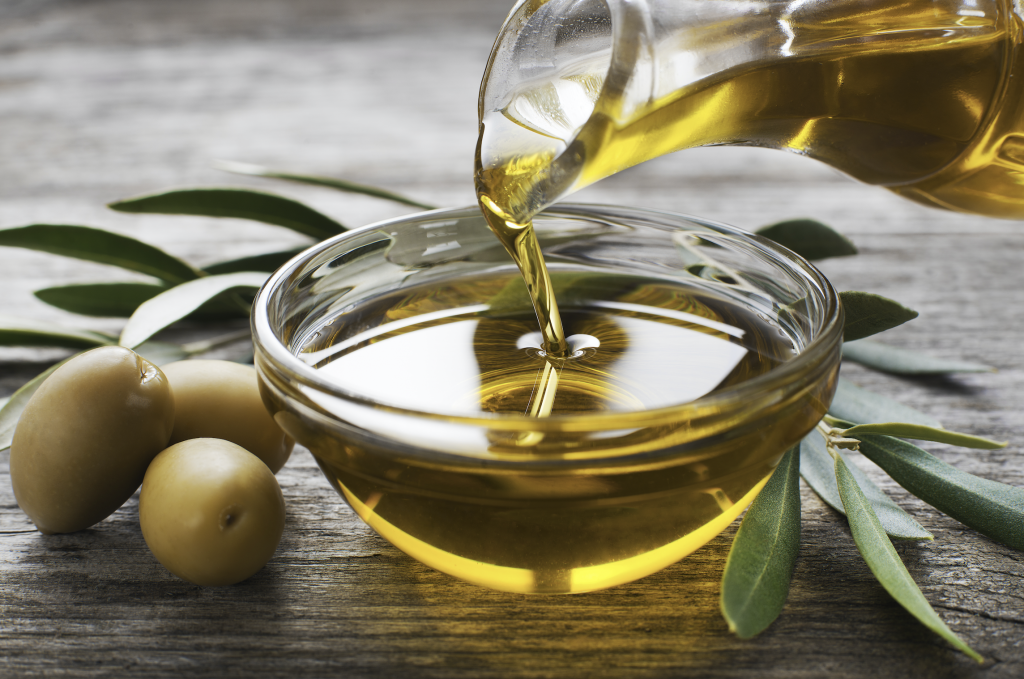Top 5 Vitamins

If you’re looking to incorporate dietary supplements and essential vitamins to keep your mind and body youthful for years, you’ve come to the right place! We will share cutting-edge research explaining how the top vitamins for human health can keep your mind sharp, curb inflammation, and even make your skin shine like the sun. Let’s start.
Vitamin D
Do you know of a more enticing-sounding nutrient than one referred to as the “sunshine vitamin”? Probably not! Vitamin D is special. It’s present in fatty fish you love – such as salmon – and fortified milk; however, its connection with the sun is worth mentioning. Sun exposure activates vitamin D in the skin, liver, and kidneys. First, UVB rays convert cholesterol in the skin to pre-vitamin D. Then, the liver and kidneys transform pre-vitamin D into active vitamin D metabolites. These metabolites regulate calcium, phosphorus absorption, and bone cell activity to maintain healthy bones and muscles.1 About 70% of the U.S. population is deficient in Vitamin D, which may be problematic in the long run, as longevity researchers have uncovered that vitamin D deficiencies influence health outcomes on many fronts, including all-cause mortality, cancer, cardiovascular disease, diabetes, and brain function.2

Vitamin D and Muscular Vitality
We all want to feel strong, don’t we? Low vitamin D levels may increase frailty risk by weakening muscle strength and slowing how fast you can walk as you age. Vitamin D supplements can reverse these effects by enhancing muscle function, slowing age-related gene changes, and maintaining youthful cellular functions.3
Vitamin D for Brian Health
Vitamin D protects neurons and maintains brain volume, influencing cognitive ability. Alzheimer’s patients exhibit lower vitamin D levels than healthy individuals, highlighting its importance for neural health. Its brain-boosting influence extends to supporting mood regulation, helping reduce the risk of depression.3
The Immune System Benefits of Vitamin D
Our ability to fight disease as we age is critical for living long and active lives. Vitamin D potentially minimizes COVID-19 severity by regulating inflammation—populations with higher vitamin D exhibited lower COVID incidence and death rates, indicating enhanced immune system effectiveness.3
Vitamin K
Vitamin K is another vitamin that should be on the radar of longevity seekers as it impacts healthy aging through diverse biological processes. Not getting enough vitamin K can increase the risk of excessive bleeding from improper coagulation or predispose to conditions like osteoporosis and cystic fibrosis. Let’s look closer at how vitamin K keeps you going as time passes.4
Mobility and Vitamin K
Vitamin K supports healthy mobility by enabling bone mineralization and reducing fractures – it facilitates osteocalcin functioning, which is essential for incorporating minerals into the bone and preserving bone density, especially as we age. A meta-analysis found that vitamin K1 supplements can lower vertebral fractures by 40% over a 6-36 months program.5
Vitamin K and Cardiovascular Health
Vitamin K triggers enzyme reactions, enabling proper blood coagulation.
In animal studies, vitamin K reduced vascular calcification, suggesting a key role in preventing artery hardening – essential for heart health – by inhibiting vessel deposits and averting blockages.5

Anti-inflammatory Effects of Vitamin K
Vitamin K, produced by intestinal bacteria, links gut and brain health by regulating inflammation – this control is crucial in mitigating aging-related conditions like Alzheimer’s and cognitive decline. By modulating the gut-brain connection that impacts neural functioning, vitamin K indicates it can be an excellent longevity ally by keeping the brain healthy and inflammation levels under check.6
B Vitamins
The eight B vitamins (B1, B2, B3, B5, B6, B7, folic acid, and B12) support critical cellular processes that give us energy, maintain our cognitive health, and supercharge our ability to fend off disease. They power the methylation cycle – a biochemical pathway for synthesizing essential compounds like DNA, RNA, and phospholipids that compose cells and tissues. In doing so, B vitamins facilitate cellular repair, metabolism for energy production, a healthy nervous system, a balanced mood, and even heightened cognitive abilities.7 Here’s how.

B Vitamins and Energy Production
B vitamins promote reactions that break down carbohydrates, proteins, fats, and micronutrients – extracting energy and nutrients from every bite of delicious food you take. B vitamins derived from plant and animal foods are fundamental for the cascade of bioenergetic processes that occur behind the scenes when we eat, which result in bodily fuel and the capacity to lead dynamic lives.7
The Immune System and B Vitamins
As we age, our immune system changes in a process called immunosenescence – immune aging – creating low-grade inflammation, reshaping immunity, and diminishing responses to new pathogens. This is why older individuals are more susceptible to influenza, COVID-19, and other infections; their immune systems cannot combat threats as effectively. B vitamins combat immunosenescence impacts by maintaining enzyme efficiency and strengthening immune responses, increasing resilience against age-related diseases.8
B Vitamins and Your Brain
B vitamins modulate homocysteine elevation, a contributor to dementia and cognitive decline risk. Studies suggest long-term B vitamin supplementation may prevent or slow age-related mental deterioration as measured by standardized tests. By facilitating cellular reactions that become impaired by middle age – if not adequately supported through a balanced diet – B vitamins offer protective effects against biochemical processes involved in cognitive aging.9
Vitamin C
Vitamin C is often associated with cold relief – yet its significance extends beyond soothing sneezes. As an essential nutrient not produced by the body, it’s sourced from citrus fruits, berries, and leafy greens – Vitamin C acts as a potent antioxidant, neutralizing free radicals and toxins, diminishing oxidative harm, and slowing cellular aging.2
Vitamin C and Cellular Aging
Vitamin C affects cellular senescence – the gradual functional decline of cells over time. Animal studies have shown that a low vitamin C diet leads to accelerated aging – deficient mice aged about 4 times faster than normal. These innocent mice experienced various health problems associated with aging and dysfunctional senescent cells, such as tissue damage in the brain and protein oxidation in the liver.10

Vitamin C Strengthens the Immune System
Vitamin C isn’t a panacea for all diseases – yet emerging research suggests that daily supplementation, with doses from 0.2g to 1g, could counter aging factors like inflammation and susceptibility to infections. Further, studies indicate its infection prevention capabilities – vitamin C may reduce illness severity and alleviate respiratory symptoms in aging individuals. This immune-boosting potential also benefits stressed groups; for those under extreme physical stress, vitamin C may lower the risk of colds, so now you know!11
Metabolic and Cardiac Benefits of Vitamin C
Vitamin C maintains the health of endothelial cells lining blood vessels – ensuring optimal vascular function over time. It assists several essential metabolic functions – synthesizing lipoproteins that transport fat and cholesterol in the blood, helping prevent arterial blockages, and maintaining your heart strong.12
Vitamin E
Vitamin E is another excellent ally in your quest for radiant health. You can find it abundantly in olive oil, sunflower oil, nuts, and green leafy vegetables. Its primary role is to shield cell membranes from oxidative damage, a fundamental process underlying aging and disease development.13

Vitamin E and Centenarians
Researchers who studied centenarians on the beautiful island of Sicily found exciting insights into the role of vitamin E in healthy aging. Sicilians, who have celebrated a hundred birthdays or more, display, compared to the general population, lower levels of lipid peroxides in their plasma – markers indicating less cumulative oxidative damage, while simultaneously they have higher plasma vitamin E levels, suggesting centenarians are better equipped to fight disease onset due to cell-protecting helpers like vitamin E.14
Vitamin E for an Active Immune System and Lower Inflammation
As part of aging, immune function declines, and chronic inflammation increases; according to research, vitamin E may help counter this effect to some degree. By preventing oxidative damage to the membranes of immune cells, vitamin E maintains their overall integrity and ability to properly communicate to coordinate protective reactions to infections like respiratory illnesses. Vitamin E modulates inflammatory response through cytokines and PGE2 compound levels, helping regulate reactions that, when overactivated, are connected to conditions associated with chronic inflammation, like obesity, non-alcoholic fatty liver disease, and type 2 diabetes, which often accompany aging.15
Vitamin Age for Glowing Skin
You want glowing skin, right? Skin aging manifests as wrinkles, sagging, and uneven tone. While the passage of time contributes to these changes, UV rays drive much of this skin deterioration by creating free radicals and reactive oxygen that hinder collagen production and degrade skin proteins. Vitamin E’s antioxidant powers counter such damage by quenching free radicals; it reduces UV-induced hyperpigmentation and shields cell membranes from oxidation, keeping your skin glistening with youthfulness! 16
Can Vitamins Help You Live Longer?
If you want to take advantage of vitamins’ rejuvenating powers, you must make the conscious choice of assuming an active role in tackling age-related declines in a decisive and structured way. But don’t panic. You’re not alone.
The most effective way to leverage vitamins with life-extending attributes lies within the framework of a thoughtfully curated longevity plan. At Kyla, we specialize in building personalized anti-aging programs formulated using advanced data analytics to understand how your body ages. By analyzing your individual health profile, we craft bespoke anti-aging strategies, refining vitamin supplementation to an art. The fusion of targeted vitamins with high-tech analysis paves a journey in which you clearly know how to keep your body strong, your mind sharp, and your spirit vibrant for years to come.
Wondering if vitamins and other supplements could unlock anti-aging possibilities for you? Get strategic with Kyla’s Anti-Aging Program. Our AI engine explores your health background, identifies risks, and generates actionable strategies–with the guidance of medical experts– to thoughtfully integrate science-backed supplements into your life, mapping out a unique journey to a longer, healthier future.

References
- Chauhan K, Shahrokhi M, Huecker MR. Vitamin D. [Updated 2023 Apr 9]. In: StatPearls [Internet]. Treasure Island (FL): StatPearls Publishing; 2023 Jan-. Available from: https://www.ncbi.nlm.nih.gov/books/NBK441912/
- Ames BN. Prolonging healthy aging: longevity vitamins and proteins. Proceedings of the National Academy of Sciences. 2018 Oct 23;115(43):10836-44.
- O’Connor D, Molloy AM, Laird E, Kenny RA, O’Halloran AM. Sustaining an ageing population: The role of micronutrients in frailty and cognitive impairment. Proceedings of the Nutrition Society. 2023 Mar 20:1-4.
- Imbrescia K, Moszczynski Z. Vitamin K. [Updated 2023 Jul 10]. In: StatPearls [Internet]. Treasure Island (FL): StatPearls Publishing; 2023 Jan-. Available from: https://www.ncbi.nlm.nih.gov/books/NBK551578/
- Langley-Evans, S. (2015). Nutrition, ageing and the elderly. In Nutrition, health and disease, S. Langley-Evans (Ed.). https://doi.org/10.1002/9781119180432.ch9
- Kyriazis M. Nutrition, hormetins and hormesis in healthy aging. Handbook Of Anti-Aging Medicine. Gatekeeper Press; 2023.
- Mikkelsen, K., Apostolopoulos, V. (2018). B Vitamins and Ageing. In: Harris, J., Korolchuk, V. (eds) Biochemistry and Cell Biology of Ageing: Part I Biomedical Science. Subcellular Biochemistry, vol 90. Springer, Singapore. https://doi.org/10.1007/978-981-13-2835-0_15
- Hardiany NS, Agusta I, Dewi S, Iswanti FC, Paramita R. Protein and Energy Supplements for the Elderly. InBiochemistry and Cell Biology of Ageing: Part IV, Clinical Science 2023 Apr 30 (pp. 309-339). Cham: Springer International Publishing.
- Wang Z, Zhu W, Xing Y, Jia J, Tang Y. B vitamins and prevention of cognitive decline and incident dementia: a systematic review and meta-analysis. Nutrition Reviews. 2022 Apr 1;80(4):931-49.
- Maezawa Y, Koshizaka M, Kato H, Yokote K. Clinical and Basic Biology of Werner Syndrome, the Model Disease of Human Aging. InAging Mechanisms II: Longevity, Metabolism, and Brain Aging 2022 Apr 29 (pp. 33-60). Singapore: Springer Nature Singapore.
- Cerullo G, Negro M, Parimbelli M, Pecoraro M, Perna S, Liguori G, Rondanelli M, Cena H, D’Antona G. The long history of vitamin C: from prevention of the common cold to potential aid in the treatment of COVID-19. Frontiers in immunology. 2020 Oct 28;11:2636.
- Abdullah M, Jamil RT, Attia FN. Vitamin C (Ascorbic Acid) [Updated 2023 May 1]. In: StatPearls [Internet]. Treasure Island (FL): StatPearls Publishing; 2023 Jan-. Available from: https://www.ncbi.nlm.nih.gov/books/NBK499877/
- Medina J, Gupta V. Vitamin E. [Updated 2023 May 8]. In: StatPearls [Internet]. Treasure Island (FL): StatPearls Publishing; 2023 Jan-. Available from: https://www.ncbi.nlm.nih.gov/books/NBK557737/
- Caruso C, Accardi G, Aiello A, Calabrò A, Ligotti ME, Candore G. Lessons from Sicilian centenarians for anti-ageing medicine. The Oxi-inflammatory status. Translational Medicine@ UniSa. 2022;24(2):16.
- Lewis ED, Meydani SN, Wu D. Regulatory role of vitamin E in the immune system and inflammation. IUBMB life. 2019 Apr;71(4):487-94.
- Rattanawiwatpong P, Wanitphakdeedecha R, Bumrungpert A, Maiprasert M. Anti‐aging and brightening effects of a topical treatment containing vitamin C, vitamin E, and raspberry leaf cell culture extract: a split‐face, randomized controlled trial. Journal of cosmetic dermatology. 2020 Mar;19(3):671-6.